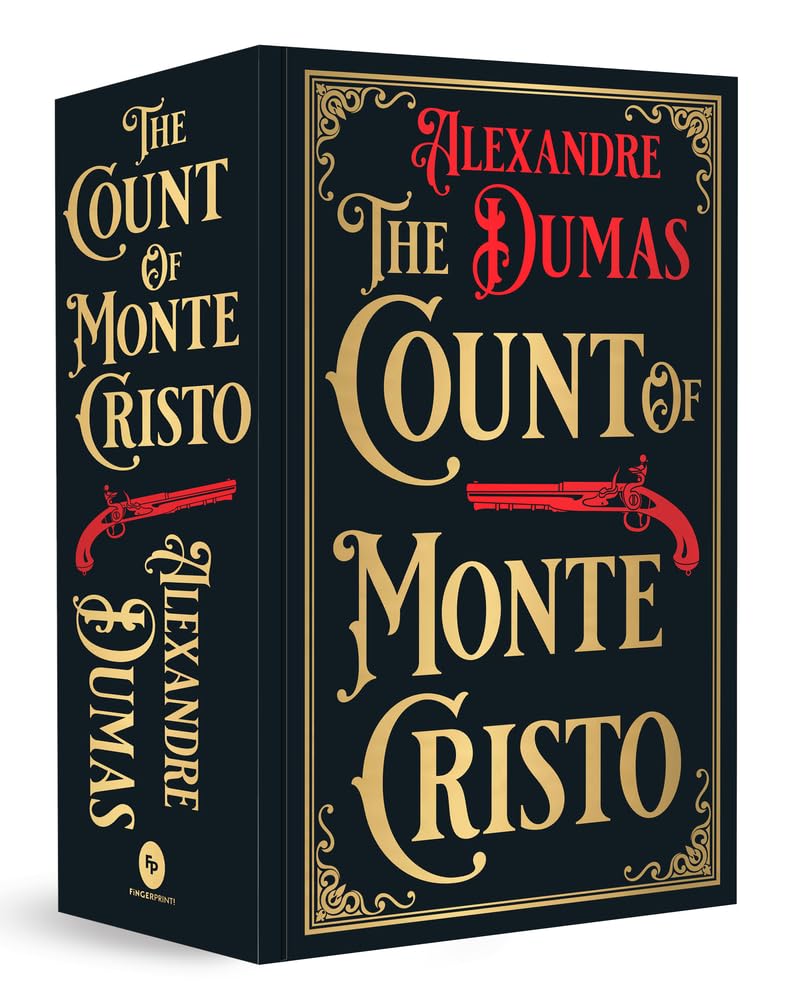The Count Of Monte Cristo: A Modern Look At A Classic Tale

Table of Contents
The Enduring Power of Revenge in The Count of Monte Cristo
Revenge forms the central pillar of The Count of Monte Cristo. Edmond Dantès's meticulously planned acts of retribution against Fernand Mondego, Danglars, and Villefort are both fascinating and disturbing. The novel doesn't shy away from exploring the complexities of revenge, questioning its justification and highlighting its devastating consequences. Is Edmond's quest for vengeance justified, or does it simply perpetuate a cycle of violence?
- Edmond's meticulous planning and execution of his revenge: Dumas masterfully depicts Edmond's transformation, showcasing his intelligence and resourcefulness as he systematically unravels the lives of his betrayers.
- The moral ambiguity of his actions: While readers sympathize with Edmond's suffering, his methods often raise ethical questions. His actions, while intended as justice, often cause collateral damage and inflict pain on innocent individuals.
- The psychological toll of revenge on Edmond himself: The pursuit of revenge consumes Edmond, impacting his mental and emotional well-being. His obsession with retribution ultimately becomes a form of self-destruction.
- Comparison to modern narratives exploring revenge: Modern cinema and literature frequently explore the theme of revenge, often mirroring the complexities and moral ambiguities found in The Count of Monte Cristo. Examples range from Kill Bill to more nuanced explorations of the topic.
The novel forces us to confront the difference between "righteous revenge," a response to a clear injustice, and the excessive, destructive pursuit of vengeance that ultimately corrupts the avenger.
Justice and Injustice in The Count of Monte Cristo
The Count of Monte Cristo is a powerful indictment of injustice and a poignant exploration of the flawed nature of the legal system. Edmond Dantès's wrongful imprisonment serves as a stark reminder of the potential for corruption and abuse of power within societal structures.
- The blatant injustice suffered by Edmond Dantès: His arrest and imprisonment are a blatant miscarriage of justice, highlighting the vulnerability of individuals facing powerful and unscrupulous adversaries.
- The failings of the French legal system in the novel: The novel exposes the shortcomings and corruption within the French legal system of the time, emphasizing how easily the system can be manipulated by the wealthy and influential.
- Edmond's quest for justice, and whether he achieves it: Edmond's quest for justice transcends the confines of the legal system. He seeks a personal form of justice, dispensing retribution according to his own sense of morality. Does he truly achieve justice? The novel leaves this question open to interpretation.
- The different forms of justice represented (legal, personal): The novel contrasts the formal justice of the court with Edmond's personal brand of justice, highlighting the limitations and potential failures of each.
The novel’s critique of the legal system resonates even today, prompting discussions about fairness, equity, and the challenges of achieving true justice in a flawed system.
Betrayal and its Consequences: A Key Theme in The Count of Monte Cristo
Betrayal forms the catalyst for Edmond Dantès's transformation and subsequent quest for revenge. The betrayals he suffers at the hands of Fernand Mondego, Danglars, and Villefort are diverse in their motivations and devastating in their consequences.
- The betrayal by Fernand Mondego, Danglars, and Villefort: Each betrayal stems from different motives—jealousy, greed, and ambition—demonstrating the multifaceted nature of human wickedness.
- The impact of these betrayals on Edmond's psyche: The betrayals leave deep psychological scars on Edmond, fueling his desire for revenge and shaping his personality.
- The different motivations behind each act of betrayal: Exploring these diverse motivations reveals the complexities of human nature and the insidious ways in which envy, greed, and ambition can corrupt individuals.
- How betrayal plays out in contemporary relationships and society: Betrayal continues to be a prevalent theme in modern society, whether in personal relationships, political maneuvering, or corporate scandals.
The exploration of betrayal in The Count of Monte Cristo holds a mirror to human behavior, highlighting the devastating consequences of deceit and the enduring pain it inflicts.
Redemption and Forgiveness in The Count of Monte Cristo
While revenge is a driving force in The Count of Monte Cristo, the novel also explores the possibility of redemption and forgiveness. The question of whether Edmond ultimately finds redemption, and whether he grants forgiveness to those who wronged him, remains central to the narrative’s complexity.
- Edmond's transformation from a wronged man to a wealthy and powerful Count: This transformation is a complex one, highlighting the potential for both good and evil within a single individual.
- His capacity for mercy and compassion: While capable of elaborate revenge, Edmond also shows moments of mercy and compassion, suggesting a potential for redemption.
- The ambiguous nature of his ultimate redemption: The ending of The Count of Monte Cristo leaves the question of Edmond's true redemption ambiguous, prompting readers to consider the lasting impact of his actions.
- The possibility of forgiveness for those who wronged him: The novel leaves the possibility of forgiveness open for interpretation. Does Edmond ultimately forgive his betrayers? Or does the weight of his actions forever shape his destiny?
The complexities of redemption and forgiveness in The Count of Monte Cristo offer profound insights into the human condition, prompting reflection on the possibility of healing and reconciliation after deep trauma.
Conclusion
The Count of Monte Cristo remains a powerful and relevant work of literature, exploring timeless themes of revenge, justice, betrayal, and redemption. Its compelling narrative and richly developed characters continue to captivate readers today. The novel's exploration of these themes, coupled with its insightful portrayal of human nature, ensures its continued relevance in the modern world. It offers a profound reflection on the complexities of justice, the devastating consequences of betrayal, and the enduring quest for redemption. Read The Count of Monte Cristo to discover its enduring power, explore the multifaceted themes of the novel, and consider its profound implications for our understanding of human nature. Engage with this classic tale and discover why it continues to resonate with readers across generations.

Featured Posts
-
 Holi 2024 West Bengal Braces For High Tide And Scorching Temperatures
May 04, 2025
Holi 2024 West Bengal Braces For High Tide And Scorching Temperatures
May 04, 2025 -
 Ufc Fight Night Predictions Sandhagen Vs Figueiredo Who Wins
May 04, 2025
Ufc Fight Night Predictions Sandhagen Vs Figueiredo Who Wins
May 04, 2025 -
 Landlord Price Gouging Allegations Surface After La Fires A Selling Sunset Star Weighs In
May 04, 2025
Landlord Price Gouging Allegations Surface After La Fires A Selling Sunset Star Weighs In
May 04, 2025 -
 Simon Cowell Furious Bgt Star Withdraws From Live Semi Final
May 04, 2025
Simon Cowell Furious Bgt Star Withdraws From Live Semi Final
May 04, 2025 -
 Okc Thunder Game Leaves Nuggets Star With Injury
May 04, 2025
Okc Thunder Game Leaves Nuggets Star With Injury
May 04, 2025
